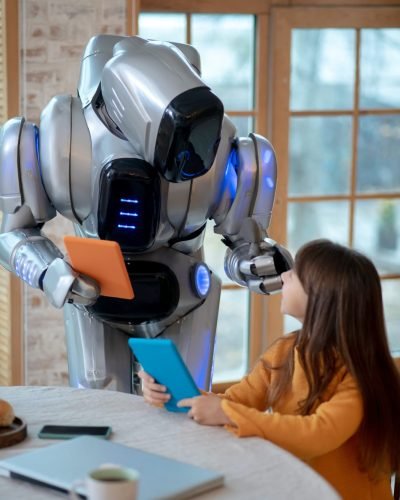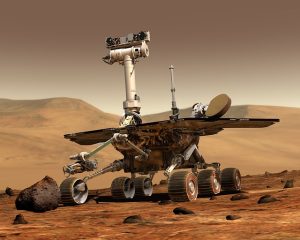
Technological Innovations in Finland’s Online Casino Industry
Finland has long been recognized as a technologically advanced country, and this reputation extends to its flourishing online casino industry. Known for their commitment to
Simply put, artificial intelligence is the ability of machines or computer systems to execute exercises that are commonly associated with intelligent beings. This is when these machines are taught to think and act like human beings, making our work easier in the long run. Artificial intelligence or AI can also describe a system that exhibits human-like intelligence and traits such as problem-solving and learning.
Artificial intelligence is constantly evolving, in turn benefiting numerous industries across the globe. Previous benchmarks that characterised AI become outdated as more research is made on the topic. For example, text recognition in most cases is no longer considered artificial intelligence since such functions have become inherent. There are numerous resources across the web, such as the EAI Journal that help advance the field of AI, thanks to research and articles published by experts in the field.
The application of artificial intelligence is endless since it is used in countless fields and industries that affect our daily lives. Professionals in the field are also constantly working to find new ways to apply AI as well as improving on existing systems.
On this page, we shall delve into the following topics:


Artificial intelligence can be categorised in two ways, basically. These are; weak and strong artificial intelligence. The EAI Journal has been considered to be quite instrumental in advancing these two categories thanks to the vast research in the fields it contains.
When talking about weak AI, we are referring to systems that have been designed to carry out one distinct job. A great example of this is virtual assistants such as Siri, Alexa and Google Assistant. This is mainly because such systems have a programmed response. You ask, they answer. On the other hand, strong artificial intelligence refers to systems that carry out exercises or tasks, acting more like a human brain. We can see such systems in hospital operating rooms and self-driving cars.
As mentioned, artificial intelligence has numerous applications in our day-to-day lives. The list is virtually endless. We can see some of its more complex applications in hospitals, where AI is used in the operating room to perform surgeries on patients. In some cases, systems are used to administer drugs to patients giving an element of precision.
The financial industry also enjoys the benefits of having AI applied. As many people have experienced, AI is used to detect unusual activity in the banking sector. A good example of this is a transaction of large sums of money as well as unusual debit and credit card activity.

Artificial intelligence can drastically boost the efficiency of a workplace depending on its applications. Experts and researchers in the field have predicted that the positive impacts of artificial intelligence may span all the way to the future and help us solve global issues such as climate change and natural catastrophe detection among others.
As much as artificial intelligence has some great uses and impacts on society, there should be a consideration on how it is used and how problems facing its application are resolved. Policy issues, transparency and ethical standards and practices are some of the issues that face AI as a whole and should also be considered when applying AI to different industries.
Although several definitions have surfaced over the years for artificial intelligence, there are a few elements in these definitions that remain similar. According to Francois Chollet, an AI researcher at Google, intelligence is the ability and efficiency to learn new things or acquire new skills that were previously unknown or unprepared for. With that said, we can define AI as a machine's or computer system's ability to mimic or simulate human intelligence. This involves performing and improving on actions such as speech recognition, visual perception, translation between languages and decision-making.
Since its founding in the 1950s, artificial intelligence has been applied in virtually all industries that affect our day to day lives. We have seen major improvements in the field over time that have made our lives easier and computers smarter, so to speak. Considering what we have seen in the past and the current trajectory the field is taking, there is no doubt that AI is here to stay and here to continue making our work and complex tasks easier.
The EAI Journal is a peer-reviewed, open-source scholarly journal that is mainly focused on scalable data mining, scalable distributed information system, and grid information systems among others. The journal publishes editorials, research, technical articles, research articles, review articles, short communications, and commentaries quarterly from professionals in the field. The EAI Journal would be the perfect avenue to learn more and be in the loop of what is going on in the field of AI.

Finland has long been recognized as a technologically advanced country, and this reputation extends to its flourishing online casino industry. Known for their commitment to

EIA Journal investigates the potential of artificial intelligence in generating works of art: literally a whole new world

Advancement in technology has led to the evolution of smart devices that continue to revolutionalise human lifestyles. The use of smart applications with automation functions

VR casino games have become very popular in the recent past. They bridge the connection between players and their favourite casino games.

Modern technology has made life easier for everyone. One aspect that has really changed our daily routines is the advancement of artificial intelligence. By incorporating

In the past, hair loss was dreadful, even a daily nightmare for many. With every waking day, one’s confidence became dimmer and dimmer. But slowly,